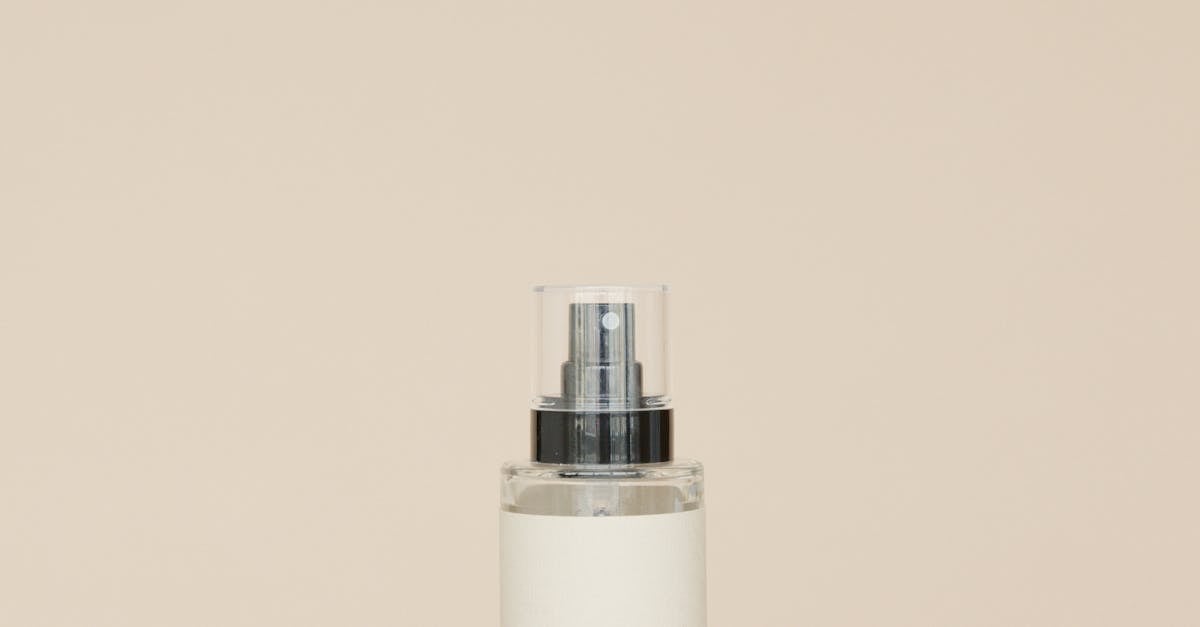Top Anti-Aging Ingredients in Skincare Products

Coenzyme Q10
Coenzyme Q10, also known as ubiquinone, is a powerful antioxidant that aids in neutralizing harmful free radicals which can accelerate the aging process of the skin. This ingredient is naturally produced by the body, but its levels decrease as we age, making it essential to incorporate it into skincare products to help maintain skin vitality.
Research has shown that Coenzyme Q10 not only fights free radicals but also helps to reduce the appearance of fine lines and wrinkles. By promoting collagen and elastin production, it enhances skin firmness and elasticity, resulting in a more youthful complexion. As a key ingredient in anti-aging skincare products, Coenzyme Q10 plays a crucial role in protecting the skin from environmental stressors and promoting overall skin health.
Coenzyme Q10 Fights Free Radicals
Coenzyme Q10 plays a vital role in skincare products as it effectively combats free radicals, which are unstable molecules that can damage skin cells and accelerate the aging process. By neutralizing these harmful free radicals, Coenzyme Q10 helps to protect the skin from oxidative stress and reduce the appearance of fine lines and wrinkles. The powerful antioxidant properties of Coenzyme Q10 make it a key ingredient in anti-aging formulations, contributing to a more youthful and radiant complexion.
In addition to its antioxidant benefits, Coenzyme Q10 also boosts the skin's ability to regenerate and repair itself. This not only helps in preventing signs of aging but also supports overall skin health and resilience. By incorporating Coenzyme Q10 into your skincare routine, you can enhance your skin's natural defenses against environmental stressors and maintain a more youthful appearance for longer.
Alpha Hydroxy Acids (AHAs)
Alpha Hydroxy Acids (AHAs) are a group of natural acids commonly found in fruits and milk. These acids are known for their ability to exfoliate the skin by breaking down the bonds between dead skin cells, revealing smoother and brighter skin underneath. AHAs work by gently dissolving the top layer of the skin, which can help to improve skin texture and tone over time.
One of the main benefits of using products containing AHAs is their ability to promote collagen production in the skin. Collagen is a protein that provides structure and firmness to the skin, and its production naturally decreases with age. By encouraging collagen synthesis, AHAs can help reduce the appearance of fine lines and wrinkles, leading to a more youthful complexion. Additionally, AHAs can also help to hydrate the skin by enhancing moisture retention, making them a valuable ingredient in anti-aging skincare products.
AHAs Exfoliate and Brighten Skin Tone
AHAs, or Alpha Hydroxy Acids, are a powerful group of exfoliants commonly found in skincare products. These acids work by gently dissolving the bonds that hold dead skin cells together, promoting cell turnover and revealing fresh, radiant skin underneath. By exfoliating the outer layer of the skin, AHAs help to smooth out its texture, minimize the appearance of fine lines and wrinkles, and improve overall skin tone.
In addition to exfoliation, AHAs also have the benefit of brightening the skin. By sloughing off dead skin cells, these acids can help to reduce the appearance of dark spots, hyperpigmentation, and dullness, leaving the skin looking more luminous and even-toned. Incorporating AHAs into your skincare routine can be particularly beneficial for those with sun-damaged skin or uneven skin tone, as they can help to revitalize and rejuvenate the complexion for a more youthful appearance.
BetaGlucans
Beta-glucans are widely recognized in skincare products for their soothing and calming properties. Derived from sources like oats and mushrooms, these polysaccharides are known for their ability to reduce redness and irritation in the skin. By forming a protective barrier on the skin's surface, beta-glucans help to lock in moisture and strengthen the skin's natural defense mechanisms.
In addition to their calming effects, beta-glucans also support the skin's overall health by promoting collagen production and aiding in the repair of damaged skin. This can lead to a more youthful and radiant complexion over time, making beta-glucans a valuable ingredient in anti-aging skincare formulations. With their gentle yet effective nature, products containing beta-glucans are suitable for all skin types, including sensitive and reactive skin.
BetaGlucans Soothe and Calm Skin
Beta-glucans have gained popularity in skincare products for their remarkable ability to soothe and calm the skin. These complex sugars derived from yeast, oats, or mushrooms can provide significant benefits for those with sensitive or irritated skin. Beta-glucans work by reducing inflammation and reinforcing the skin's natural barrier, making it less prone to redness and discomfort.
In addition to their soothing properties, beta-glucans also boast antioxidant benefits, helping to protect the skin from environmental stressors that can contribute to premature aging. By incorporating skincare products containing beta-glucans into your routine, you can help maintain a calm and balanced complexion while safeguarding against external aggressors.
FAQS
What is Coenzyme Q10 and how does it benefit the skin?
Coenzyme Q10 is a powerful antioxidant that fights free radicals, helping to reduce signs of aging and protect the skin from damage caused by environmental factors.
How do Alpha Hydroxy Acids (AHAs) contribute to anti-aging skincare products?
AHAs are known for their exfoliating properties, helping to remove dead skin cells and promote cell turnover, resulting in a brighter and more even skin tone.
What are Beta-Glucans and how do they help in anti-aging skincare?
Beta-Glucans are natural sugars that help to soothe and calm the skin, reducing inflammation and promoting overall skin health, making them a valuable ingredient in anti-aging skincare products.
Related Links
Exploring Non-Invasive Anti-Aging TreatmentsUnderstanding the Role of Retinoids in Anti-Aging Treatments